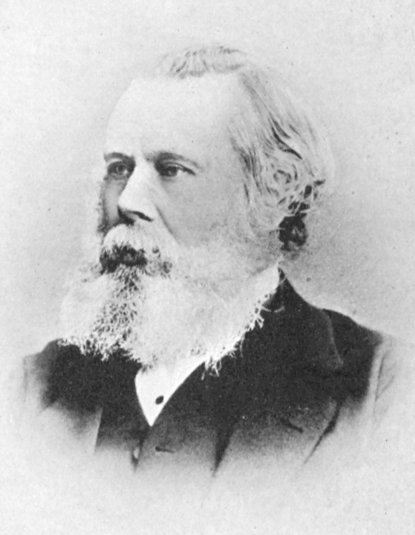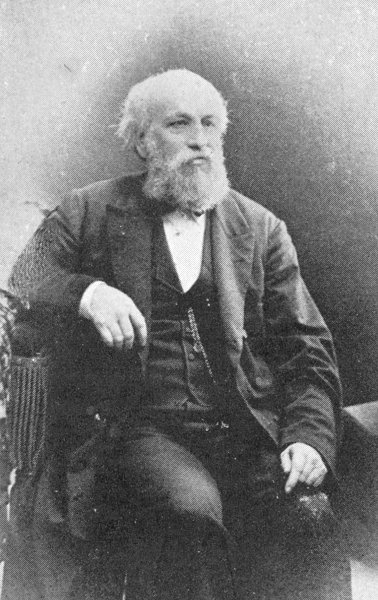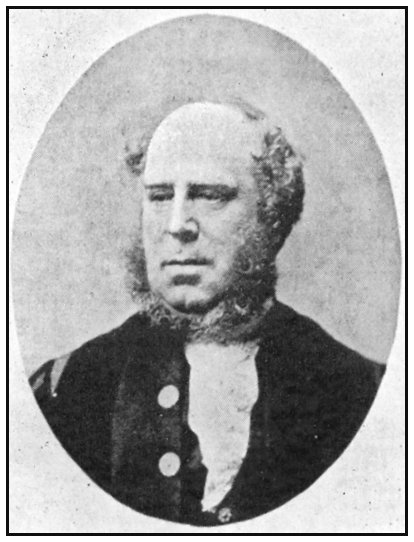|
The
Public Libraries Act of 1850
It looked as though the public
subscription libraries had had their day, but it took many years before free libraries were
properly established.
In reality it was the first legislative step to
providing everyone with free access to information and
books. The Bill was introduced five years after the
Museums Act 1845, which empowered boroughs with a
population of 10,000 or over to raise a
halfpenny rate for the establishment
of museums.
The Museums Act had been introduced
thanks to the work of two members of parliament, William
Ewart and Joseph Brotherton, who introduced the Bill for
free public libraries. The Public Libraries Act became
law in 1850, but like the Museums Act, it only applied
to boroughs with a population of 10,000 or over. Borough
Councils also had to obtain the consent of two thirds of
their ratepayers, who voted in a referendum. Also a rate
of no more than a halfpenny in the pound could be
raised, and this money could not be used to purchase
books. In 1853 the Act was extended to cover Scotland,
and in 1855 the rate was increased to one penny, some of
which could now be spent on books.
The penny rate was still inadequate to cover all the
costs of local libraries, which still relied on some
support from wealthy philanthropists. Many people were
delighted with the free libraries because they were seen
as a way of providing self-improvement through reading,
for all classes
Adoption of the Act in
Wolverhampton Initially there
was a lot of opposition to the opening of a free library
in Wolverhampton and nothing changed for around fourteen
years. |
|
In 1860, the Mayor, Mr. B.
Hicklin, attempted to have the Free Library Act
adopted in Wolverhampton. At a council meeting,
Charles Mander brought forward a resolution for its
adoption and the resolution was carried by eighteen
votes to thirteen. Many ratepayers were against the
proposal and a public meeting was called in St.
George's Hall.
Many of the large number of ratepayers present at
the meeting were determined for the resolution to be
dismissed.
When the resolution was proposed, there were loud
cries and shouts from all parts of the room: "We
don't want it, and we won't have it" and loud shouts
of "No! No !" rose from all sides of the hall.
When the vote was taken, on a show of hands,
hardly anybody voted for the resolution.
The opposition arose from a fear of increasing
the rates to one penny in the pound. |

Charles Mander. |
|
Eight Years’ Delay
Eight years passed after the
boisterous meeting in St. George’s Hall, before
anything was done.
Since the meeting, the Working
Men's College had closed, and members of the
Mechanics' Institute could not continue any longer.
A special meeting was held at the institute on the
28th August, 1868, to give support to the free
library movement. The following resolution was
proposed: That in the event of the Free Libraries
Act being adopted in Wolverhampton, within six
months of this date, this meeting empowers the
committee to transfer the whole of the property of
the members of this institute to the Corporation for
the purposes of a Free Library and Reading Room. |
|

Mr. A. C. Pratt. |
During the meeting, Mr. A. C. Pratt, a
well-known journalist, made a practical suggestion.
He said that the members of the committee must not
wait to be led by others, but go to the people
themselves. He suggested the formation of a working
men's committee to visit workshops and factories, to
hold meeting's of working men and explain to them
the advantages which would be gained by themselves
and their children, by the establishment of a free
library in the town, and ask for their help. The
committee members were James Phillips (chairman),
Dr. Pickett, R. Emery, W. S. Darkin (factory
inspector), F. Yates, W. H. Colebourn, C. Price, C,
Walker, James Mansell, Mr. Dawson, Hanson Griffiths,
and A. C. Pratt (hon. Secretary)
Some of the workmen were formed into committees.
These men were assisted by Messrs. W. M. Fuller,
Mr. Philips, R. P. Walker, W. H. Colebourn, Mr. Walker,
Mr. Price, and Mr. Picketts.
Mr. Pratt also visited local towns to discover
how they had fared after adopting the Act and
reported his findings at a committee meeting held at
the institute on the 9th January, 1869. At the
meeting, the proposal from the 28th August, 1868, for
the transfer of the contents of the institute to the
Corporation for its inclusion in a free library was
unanimously agreed to. |
| A petition containing a large number of
signatures was handed to the Mayor, Alderman
Ironmonger, on the 12th January, requesting him to
call a public meeting.
The petition had been signed by seven local
magistrates, twelve clergymen, twenty nine town
councillors, twenty two principal manufacturers and
merchants, fifteen professional men, ninety four
shopkeepers, and 980 skilled workers.
The Mayor complied with the request and arranged
a meeting in St. George's Hall on the 8th February,
1869. |

Alderman Ironmonger, JP. |
| The hall was crowded, and the Mayor and Town
Clerk along with Sir John Morris, Rev. T. G. Horton,
Rev. G. Everard, and other clergymen, together with
several of the influential inhabitants, were
present. The resolution that the Free Libraries Act
(1855) be adopted by the Borough of Wolverhampton
was enthusiastically carried.
The promoters were delighted with their success,
and celebrated by holding a tea party in St.
George's Hall, on Easter Monday, 1869. It was
attended by about 500 working men and their wives. |
 |
|
 |
|
 |
Return to
Working
Men's College |
|
Return to
the contents |
|
Proceed to the
Free Library |
|